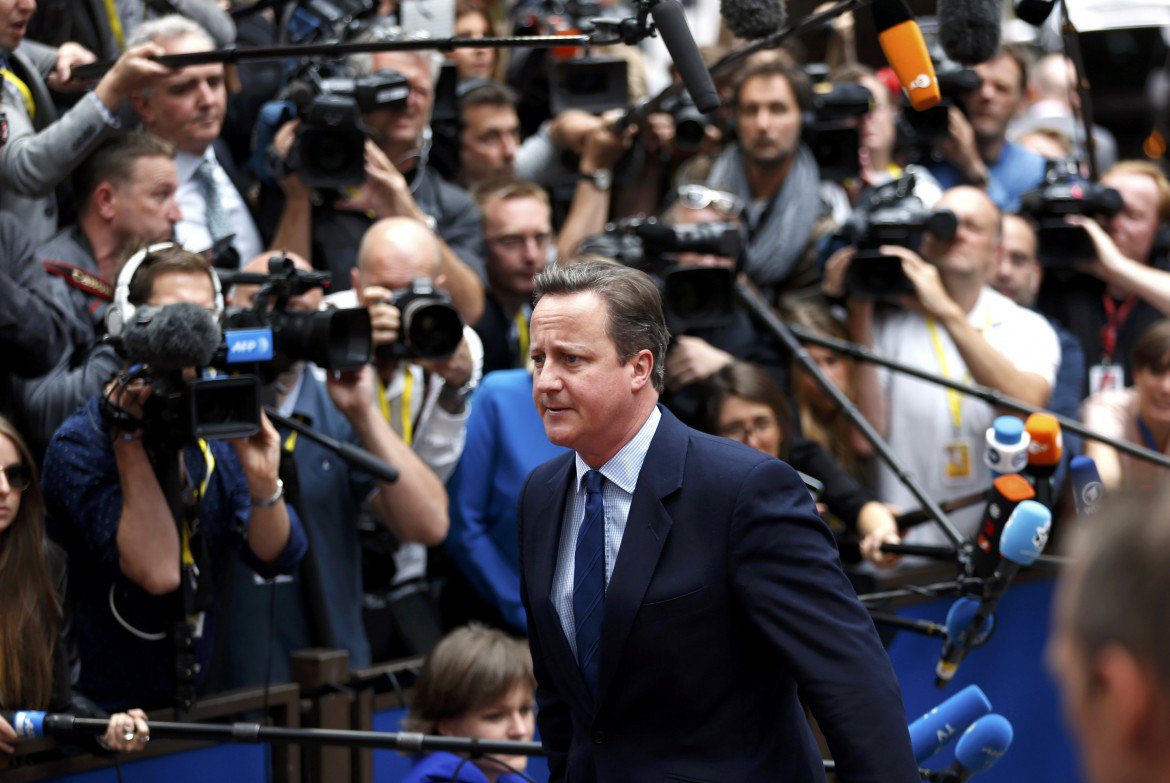Europe
Brexit: Sooner or later?
Some conservatives are hoping for a “Hotel California” option, but Europe thinks otherwise.

To lighten the mood, some people have suggested that David Cameron, who would be the right age, has “Hotel California” by The Eagles on his mind. “You can check out any time you like, but you can never leave.”
The British conservative government would love a simple checkout option that lets them stay in the E.U. forever, which for London means a single market and a financial passport.
But that’s not how the union feels about it. At least this is the institution’s official position beyond the fissures that have already come to the light during these latest confused hours. On Tuesday afternoon, Cameron was invited to speak at a dinner at the European Council in Brussels. But on Wednesday morning, he skipped the breakfast, which was limited to the remaining 27 countries. The E.U. wants Cameron, attending his final European summit, to clarify London’s actions: That is, when will it activate Article 50 of the Treaty of Lisbon?
Cameron continues to insist Great Britain wants a “process as constructive as possible” because “naturally, we are leaving the E.U., but we must not turn our backs to Europe. These countries are our neighbors, friends, allies, partners.”
Cameron, who after September will leave his successor the task of negotiating, aims for a “relationship as close as possible” in the fields of “trading, cooperation and security.” For the moment, the E.U. is holding firm. Jean-Claude Juncker, president of the European Commission, said, “No notification, no negotiation” and, most of all, he assured that there won’t be “secret negotiations,” as such suspicions increase.
Donald Tusk, president of the E.U. Council: “We are ready even today to activate the procedure.” Angela Merkel, the German chancellor, said before the Council: “There must be sensible differences between a country wanting to be a part of the E.U. family and one which doesn’t. Those leaving the family cannot expect that all the obligations disappear and only the privileges remain.”
French Prime Minister Manuel Valls told the Assemblée, “The British conservative party is not the one who must impose the agenda” at the E.U., and President François Hollande said, “It’s the United Kingdom that must make the first step; the negotiation can begin only after that.”
The European Parliament voted Tuesday (395 for, 200 against, 71 abstentions) for a “rapid and coherent implementation of the revocation procedure.” in other words, it wants Britain to leave sooner than later to protect the E.U.’s integrity. Parliament President Martin Schulz wants “a clarification” on the calendar and negotiations carried out “in reciprocal respect.” Tensions manifested in the European Parliament in the form of a joke between Ukip leader Nigel Farage and Juncker: “What are you still doing here?” To which Farage replied, “When I came here 17 years ago and I said that I wanted to lead a campaign to get Britain to leave the European Union, you all laughed at me — well I have to say, you’re not laughing now, are you?”
And then a warning: “The United Kingdom will not be the last member state to leave the European Union.”
After Merkel, Hollande and Italian Prime Minister Matteo Renzi met in Berlin, their final text insisted on two points: that there’s no time to waste and that the E.U. is still strong. Yet confusion reigns. On Wednesday, Scottish Prime Minister Nicola Sturgeon, following the mandate from her constituents to remain in the E.U., arrived in Brussels. In London, Mayor Sadiq Khan sought more autonomy, plus a chair at the Brexit negotiating table, saying that remaining in the single market is a priority for the city. (He reassured he wasn’t trying to form a city-state: “I’m not planning to blockade the M25.”)
Tusk, unexpectedly, has been the only one appealing to sentimentality during Tuesday’s difficult back and forth: “The Brexit is not just a political procedure, and one of interests, but it also involves emotions and feelings.” In any case, however, for the president of the E.U. Council, “What was, was. Now we must go ahead with the regular agenda.”
But the E.U. never loses its old habits. The agenda will be a slow one. Tusk proposed an “extraordinary summit” in September to “agree on concrete projects to be carried out in Europe within the next six months for growth and security.”
At least one piece of good news for the union: Danish Prime Minister Lars Løkke Rasmussen said his country won’t follow Great Britain, and Estonia warned: “No revenge.” Bulgarian Prime Minister Boris Borissov sarcastically remarked on the U.K’s Leave campaign, accusing it of easy populism: “In one night, the United Kingdom has lost about 20 times the value of its contributions to the European Union’s budget.”
Originally published at http://ilmanifesto.info/se-la-brexit-si-rallenta/ on 2016-06-29
